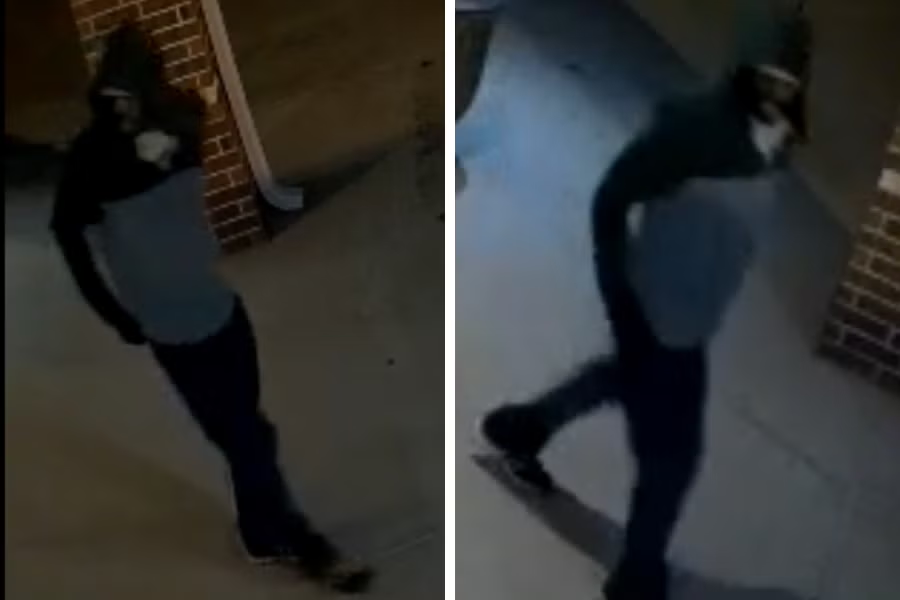Jonathan Joss Fatally Shot Amid Long-Term Alleged Homophobic Harassment in San Antonio; Husband Recounts Years of Threats and Arson Before Tragic Death
SAN ANTONIO, TEXAS — June 3, 2025 — The death of 59-year-old Jonathan Joss, a respected Native American actor and beloved husband, has left a community stunned and grieving. He was shot and killed on June 1 during a harrowing altercation in San Antonio that his spouse describes as the result of a prolonged campaign of homophobic abuse and threats.
The man accused of killing Joss has been identified as 56-year-old Sigfredo Alvarez Ceja, a neighbor of the couple. He was arrested at the scene and has been formally charged with first-degree murder. The shooting occurred near the ruins of a home once shared by Joss and his husband, Tristan Kern de Gonzales — a home that was destroyed in a fire months prior, which the couple had suspected was intentionally set.
The killing has reignited widespread concern over hate-motivated violence and has drawn public attention to what Joss’s surviving husband calls years of unaddressed harassment, verbal assaults, and threats from individuals in the neighborhood.
Timeline of a Tragedy
According to multiple witness accounts and statements made by de Gonzales, the events leading up to the fatal shooting were both sudden and tragic, yet rooted in a long-standing pattern of intimidation. On the evening of June 1, Joss and his husband returned to the burned-out remains of their former home, where they were paying respects to the lives and memories lost in the fire earlier that year — including the loss of their dog, whose remains they reportedly discovered during their visit.
As they stood on the property, Ceja allegedly approached the couple, spewing hostile and homophobic language. Within moments, the confrontation escalated violently, and Ceja is accused of drawing a firearm and fatally shooting Joss in front of his husband. Emergency responders arrived at the scene shortly after the shooting, but Joss was pronounced dead before he could be transported to a hospital.
Ceja was arrested without incident and remains in custody pending further legal proceedings. Authorities have confirmed that he faces a murder charge, and prosecutors are reviewing whether additional charges may apply.
Years of Intimidation and Fear
De Gonzales, speaking to the public in the days following the murder, described the shooting as the culmination of a relentless campaign of hate that spanned several years. He detailed how both he and Joss endured repeated threats, verbal attacks, and slurs from individuals in their neighborhood. Among those threats, he says, were warnings that their home would be set on fire — a horrifying prophecy that seemingly came true earlier in 2025 when the couple’s house was destroyed in a blaze. The fire also claimed the lives of their pets and left them displaced.
Despite raising concerns with local law enforcement after the fire, de Gonzales said that he and Joss felt their complaints were not taken seriously. Official investigators at the time concluded the cause of the fire to be accidental, though de Gonzales insists that circumstantial evidence and community hostility point to arson as a possible cause.
The tragedy has raised critical questions about how seriously hate-related complaints are addressed, especially when they involve members of the LGBTQ+ community. Several civil rights organizations are now calling for a renewed investigation into the fire and whether local authorities failed to take preventive action that might have saved Joss’s life.
A Celebrated Artist and Advocate
Jonathan Joss was widely recognized for his contributions to film and television, particularly his voice work as John Redcorn in the animated series “King of the Hill,” and his recurring role in “Parks and Recreation.” He was known for bringing depth, dignity, and humor to roles that showcased Native American characters with authenticity and respect.
Born and raised in San Antonio, Joss was of Comanche and White Mountain Apache heritage and took great pride in promoting Indigenous culture through his art and public appearances. Beyond acting, he was also a singer and activist who used his platform to advocate for better representation of Native people in mainstream media.
Friends and colleagues described Joss as generous, humorous, and deeply committed to his community. He was known for mentoring young Native actors and participating in cultural preservation events across the Southwest.
Joss and de Gonzales married on Valentine’s Day in 2025, months before the attack. The two were described by friends as inseparable and deeply supportive of one another’s passions and careers.
A Community in Mourning
The news of Joss’s death has sent ripples through artistic, Indigenous, and LGBTQ+ communities across the country. Vigils have been held in San Antonio and elsewhere to honor his memory and express solidarity with his grieving husband.
Local leaders have expressed outrage and sorrow. City officials have pledged transparency in the ongoing investigation, while advocacy groups are urging state and federal authorities to examine whether the crime meets the threshold of a hate crime under both state and federal law.
Calls for stronger protections against hate-motivated violence have grown louder in recent days. Activists point out that members of marginalized communities often report patterns of harassment long before violent acts occur, only to have their concerns minimized or dismissed until tragedy strikes.
In response, several elected officials have proposed efforts to improve the tracking and investigation of bias-related incidents, enhance training for police departments in recognizing hate crimes, and expand resources for victims of harassment and discrimination.
Legal and Investigative Outlook
As of this writing, Sigfredo Alvarez Ceja remains behind bars and is expected to appear in court in the coming days. The state has not yet indicated whether it will pursue hate crime enhancements in the case, though public pressure is mounting.
Investigators are continuing to review evidence from the scene, including witness statements, surveillance footage, and prior reports made by the victims. Advocates say the case represents a critical test of how seriously the justice system takes allegations of anti-LGBTQ+ violence, especially when warning signs are present over an extended period.
The outcome of this case may also shape future conversations around community accountability, legal protections, and systemic reform.
Remembering the Life and Legacy of Jonathan Joss
At the heart of this tragedy lies the loss of a gifted artist, a loving husband, and a man whose legacy touched many lives. As friends, fans, and family come together to remember Jonathan Joss, they do so not only in mourning but also in determination — to ensure that his life is remembered with dignity, and that the circumstances of his death serve as a wake-up call for broader social change.
Joss’s legacy will live on through his work, his advocacy, and the countless individuals he inspired. In the days ahead, tributes and remembrances are expected to continue, with several of his former colleagues and cultural organizations planning events in his honor.
As investigations unfold and legal proceedings begin, one truth remains: Jonathan Joss should be remembered not for the violence that took him, but for the life he lived, the people he loved, and the courage he showed in the face of hate.




